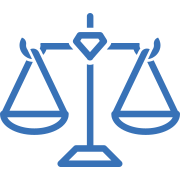
Contact Us Today!
Savannah Repossession Lawyers
Expert Repossession Defense in Georgia
Most people think their vehicle will not be repossessed until one or two payments are behind. This is not true. In Georgia, once late, the lender can pick up the vehicle without notice in the middle of the night. You can stop him in his tracks by filing a bankruptcy. If the repo man already has your vehicle often (not always), we can get it back.
At Barbara B. Braziel Attorney At Law, we have helped countless people in and around Savannah manage their debt through Chapter 7 and Chapter 13 bankruptcy filings. This includes paying back the arrears on car and vehicle loans. Our goal is to work with you to create a plan for your debts that is right for you and that you can afford. With 42 years of experience, we are well-equipped to assist you and represent your case in bankruptcy court.
Call Barbara B. Braziel Attorney At Law today at (833) 522-1069 or contact us online to schedule a meeting with our repossession attorney in Savannah!
Repossession in Georgia
When you take out a loan to buy your car, it is a legal contract in which you agree to repay the loan in installments. The lender retains title to the vehicle, which is held as collateral against the loan. If you fail to make your loan payments, the lender has the right to repossession.
Technically, lenders can seize vehicles any time after due payments are not received. Furthermore, they don’t have to notify you. Once they take possession of the vehicle, they will notify you within ten days, informing you that it has been repossessed and what you need to do to retrieve it. This will involve paying off your loan and repossession fees within a certain timeframe.
If you fail to do the above, the vehicle will be sold at auction. Vehicles sold at auction typically do not sell for enough to cover the balance of what you owe. This leads to a “deficiency amount,” which you will be expected to cover after the sale. Lenders can take legal action against you to collect this amount.
Understanding How Bankruptcy Stops Repossession in Georgia
Bankruptcy can stop repossession in Georgia by providing you with legal protection and time to reorganize your finances. When you file for bankruptcy, an automatic stay is put into place, temporarily halting all collection activities against you, including repossession.
Here's an overview of the process:
- Choose the type of bankruptcy: Two main types of personal bankruptcy are available: Chapter 7 and Chapter 13. Chapter 7 is a liquidation bankruptcy in which your non-exempt assets may be sold to pay off your debts. Chapter 13 is a reorganization bankruptcy in which you can create a repayment plan to pay off your debts over three to five years.
- File the bankruptcy petition: To initiate the bankruptcy process, you must file a petition with the bankruptcy court. This includes submitting various forms and documents outlining your financial situation, such as income, expenses, assets, and debts.
- Automatic stay: Once your bankruptcy petition is filed, an automatic stay goes into effect. The stay prevents creditors from taking further collection actions against you, including repossession, garnishments, and even phone calls or letters demanding payment. This gives you some breathing room to address your financial issues.
- Chapter 7 bankruptcy: If you file for Chapter 7 bankruptcy, you may be able to keep your car if its value falls within Georgia's exemption limits, or you can reaffirm the debt. Reaffirming the debt means you agree to continue making payments on the loan as if the bankruptcy never occurred. However, if your car's value exceeds the exemption limit and you cannot reaffirm the debt, the trustee may sell the car to pay off your creditors.
- Chapter 13 bankruptcy: In Chapter 13 bankruptcy, you can stop repossession by proposing a repayment plan that includes your car loan. This plan creates a three—to five-year repayment plan. This allows you to reorganize and pay back a portion or all of your debt, including your vehicle, over time. You'll need to make regular payments to the bankruptcy trustee, who will distribute the funds to your creditors. If you continue making payments under the plan, your car will be protected from repossession.
- Complete the bankruptcy process: The bankruptcy process is complete once you have completed your repayment plan (Chapter 13) or received a discharge of your debts (Chapter 7). In Chapter 13, if you have kept up with your plan payments, you should be current on your car loan and no longer at risk of repossession.
Contact Our Savannah Repossession Attorneys Today
At Barbara B. Braziel Attorney At Law, we understand that a financial crisis can jeopardize your belongings and create serious distress. You may not know where to turn for solutions when you are underwater financially. We urge you to take advantage of our experience, personalized service, and genuine desire to help. Call us to book your appointment to speak directly with one of our attorneys today.
Contact Barbara B. Braziel Attorney At Law today to schedule a meeting with our repossession lawyer in Savannah!
Hear From Our Happy Clients Reviews & Testimonials

-
"We are extremely happy with their job on our bankruptcy case! Definitely recommend them! The team was thorough and provided knowledgeable advice in a professional manner. They made sure we understood every step."- Laura K.
-
"What an amazing group of bankruptcy experts. I’m very satisfied with their work, and the advice they were able to provide. Our bankruptcy case was much easier thanks to your service. Thank you again for the great work!"- Jackson M.
-
"This firm provides personalized service and support to their clients. I feel like the weight of the world has been lifted off of my shoulders. There is no way to express how much this team changed my life for the better. I can breathe again!"- Nick B.




